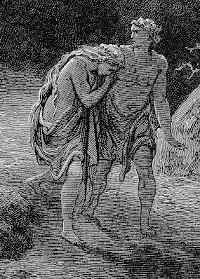
My previous essay focused on the exegesis of Genesis 1 to 3. I wrote this as a reply to the discussion of Genesis 1 to 3 in the “Anglican Diocese of the Living Word’s” Response to an essay I had written with Bishop Grant LeMarquand entitled “Women in Holy Orders.”
The creation accounts of Genesis are crucial to any discussion of the subordination of women to men because these are the single Old Testament texts that lay the groundwork for any discussion of human sexuality. Crucial to this discussion is Genesis 3:16, traditionally translated “Your desire shall be for your husband, and he shall rule over you.” This is the first reference in Scripture to the subordination of women to men. Egalitarians point to this verse and its context to claim that the subordination of women is a consequence of the fall into sin, and was not God’s original intention in creation. To the contrary, because complementarians claim that subordination of women to men is a creation ordinance, they necessarily have to argue that Gen. 3:16 is not the introduction of subordination, but rather that there are “hints” of subordination elsewhere in the Genesis accounts. I have addressed these “hints” in the previous essay.
Following the publication of my book Icons of Christ: A Biblical and Systematic Theology for Women’s Ordination, a Reformed Episcopal priest named Matthew Colvin wrote a negative review, to which I responded here. Colvin is critical of my interpretation of Genesis 3:16: “Witt thinks that the woman’s ‘desire for (not against)’ (64) her husband is a neutral and beneficial thing, and claims that the words ‘he shall rule over you’ (Gen. 3:16), are a new postlapsarian imposition of a hierarchy where there had been none before the fall.” To the contrary, Colvin claims “[t]hat the original order of creation was not egalitarian can be seen . . . from a careful reading of Genesis 3.” Colvin’s reading is that “the ‘desire’ here is not a romantic attraction or affection, but a desire that goes against the man’s rule or direction, which are nonetheless asserted by God” (my emphasis).
In this essay, I intend to reply to Colvin.


